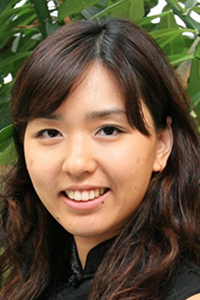
Faculty Spotlight
What inspired you to specialize in your field, and how do you bring that passion into the classroom?
I chose this field because I have always been very passionate about helping others. I pursued a degree in psychology (and specialized in counseling in particular) because I enjoy learning about why people behave the way that they do and using that information to better understand, empathize, and help people. Many of our students are interested and passionate about pursuing a career in counseling. Thus, I find it extremely fulfilling when I am able to help these students develop foundational knowledge and skills in counseling
Can you share a highlight from your research or professional work that has influenced your teaching?
My research focuses primarily on Asian American psychology, but I am interested in the lived experiences of all marginalized or underrepresented groups and in understanding the sociocultural factors that influence their psychological well-being. In Psychological Foundations of Helping, we discuss the cultural limitations of traditional psychotherapy in effectively working with clients of diverse backgrounds, In Theories of Psychotherapy, we cover feminist therapy and multicultural approaches and in my Psychoactive Drugs course, we discuss the sociocultural and racial factors that underlie the history and development of the U.S. Drug Policy.
How do your courses engage students in active learning and critical thinking?
My teaching approach is based on active learning and critical thinking, involving: (1) educating students on the interconnection between theory, research, and practical application, (2) providing practice on real-life application of theories, (3) challenging students to examine psychological issues from multiple perspectives, (4) engaging students in cooperative learning, and (5) providing individualized feedback.
First, it is important to understand the interconnection between theory, research, and practical application. Counseling approaches should be empirically supported by research. In my courses, I address psychological theories and research evidence, underscoring the connection between theory, research, and practice.
Second, students must practice real-life application of theories and knowledge. Learning to apply psychological theories to clinical cases is essential. I provide ample practice in applying these theories to real-life cases and developing counseling skills in mock sessions.
Third, I develop students’ critical thinking skills by challenging them to examine psychological issues from multiple perspectives. I require students to examine the research supporting each perspective before forming conclusions based on theoretical knowledge and empirical evidence.
Fourth, I engage students in cooperative learning, where they work in pairs or groups to apply psychological concepts to case studies or current events. Students also learn to provide constructive peer evaluations and feedback. This allows students to learn from each other and offers me the opportunity to facilitate learning through group discussions and individualized feedback.
Lastly, it is important to consistently provide individualized and comprehensive feedback. Students receive this feedback on every assignment and are encouraged to use it for revisions or future work.
What future developments in your field excite you the most, and how do you prepare students for these changes?
The most recent APA guidelines for the undergraduate psychology major (APA, 2023) focus “more extensively on the obligation of psychological science to contribute to fairness and justice” and emphasize “equity, diversity, and inclusion issues…as a fundamental and deeply held value in psychology” (p. 27). After graduating from UIS, students will need to be able to effectively serve a diverse population and to foster a more just and equitable society.
I believe that we have a responsibility and obligation to educate our students to respect and value different perspectives and worldviews, gain more cultural knowledge, acknowledge the Eurocentric limitations of existing psychological theories and research, become familiar with current multicultural research, and modify traditional helping approaches to better serve diverse others. I attempt to do this by addressing diversity and equity issues across my psychology course content and assignments. I also developed and teach the Multicultural Counseling course, which focuses specifically on how to effectively work with diverse populations in a clinical setting.
Can you describe a recent project or assignment mainly engaging your students?
One of my favorite courses to teach is Psychological Foundations of Helping. In class, we introduce a new set of counseling skills and the students practice using those skills in short roleplays. Peers provide each other with feedback on the roleplays. Throughout the semester, students participate in mock counseling sessions with a partner, in which one student serves as a counselor and the other as a client.
What advice would you give students in your discipline to enhance their employability after graduation?
Employers are looking for graduates who not only have academic knowledge, but also strong clinical and analytical research skills. In the Psychology Department, students have the opportunity to participate in internships to learn more about a career that they are interested in pursuing, Students determine whether the career is a “good fit,” learn how to apply the knowledge they gained in the classroom in a real-world setting, obtain career advice and guidance from professionals, create a professional network and secure references, and build a strong resume. By engaging in research, student develop strong analytical and critical thinking skills as well as presentation and writing skills. by working with a faculty mentor, these students often receive individualized mentorship and other professional development advice. my best advice to students is to take advantage of these opportunities outside of the classroom during their time at UIS.